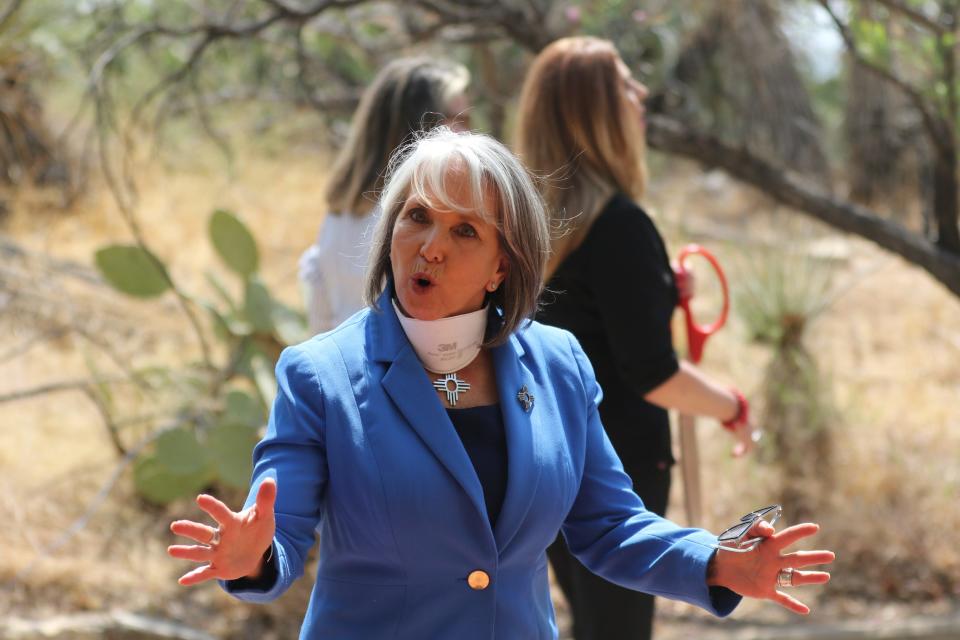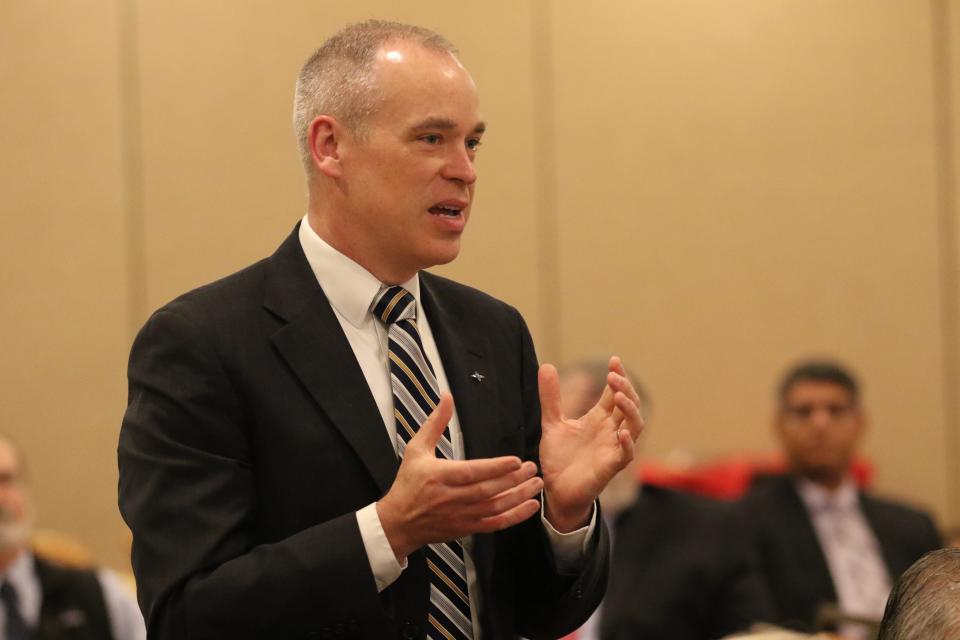Gov. Lujan Grisham calls out Supreme Court decision as 'devastating' to NM's waters
New Mexico’s state leaders criticized the Republican-led U.S. Supreme Court for a recent decision that could limit protections for waterways throughout the arid state.
The Supreme Court issued a judgement on May 25 in Sackett vs. the U.S. EPA, ultimately finding the Clean Water Act (CWA) only applied to wetlands that are directly connected to permanent bodies of water.
The case arose from Michael and Chantell Sackett, a couple who bought property in Priest Lake, Idaho and began backfilling the lot with dirt to build a home.
More: Less rain. Rising temperatures. Climate change forces New Mexico to plan for water scarcity
They were notified by the U.S. Environmental Protection that the backfilling violated the Clean Water Act by discharging pollutants into the “waters of the United States,” read the SCOTUS verdict and were ordered to restore the site and pay $40,000 per day in fines.
THE EPA alleged the backfilling occurred near a ditch that fed into a creek that fed into Priest Lake.
A district court and the Ninth Circuit Court of Appeals ruled in favor of the EPA, but the SCOTUS decision reversed these rulings.
More: 'Forever chemicals' found in New Mexico oil and gas wells. Could toxify water, study says
The opinion was written by Justice Samuel Alito, with the other members issuing concurring opinions in the case.
“In sum, we hold that the CWA extends to only those ‘wetlands with a continuous surface connection to bodies that are waters of the United States in their own right, so that they are 'indistinguishable' from those waters,” read Alito’s opinion. “This holding compels reversal here. The wetlands on the Sacketts’ property are distinguishable from any possibly covered waters.”
But New Mexico Gov. Michelle Lujan Grisham contended the decision weakened the Clean Water Act and could put many of New Mexico’s fragmented rivers and streams at risk.
More: Oil and gas land sale nets $79M. New Mexico environmental groups fear climate impacts
In a statement following the verdict, Lujan Grisham said she was “appalled” and contended the ruling would leave 90 percent of New Mexico’s waters without federal protection from development.
Lujan Grisham said her administration planned to study how state law could be used to fill any “regulatory gaps” created by the Supreme Court ruling to protect the state’s limited water resources.
“New Mexico is a state where water holds immeasurable cultural, economic and recreational value, and this is an administration that does not take a single drop for granted,” she said. “In an arid state like ours and because of a drying climate, all of our state’s precious water resources must be afforded robust legal protections.”

More: Protests rally ahead of federal oil and gas lease sale in southeast New Mexico
The decision was also decried by the New Mexico Environment Department, with Cabinet Secretary James Kenney arguing it threatened the state’s relationship with its water both as a natural and cultural resources.
He said these risks were exacerbated by climate change, and the federal government should be increasing oversight of water sources amid continual aridification throughout the U.S.
“The U.S. Supreme Court’s decision amounts to cultural appropriation for New Mexico’s residents and tribal members, stripping us of our connections to our most precious natural resource,” Kenney said following the verdict. “This comes at a time when climate change demands even greater protections of ephemeral streams, wetlands and groundwater.
“While this decision is devastating to water-starved western states, we will not be deterred from our mission to protect water for current and future generations.”

More: Civil rights violated by New Mexico approving oil and gas operations, lawsuit says
New Mexico environmental and water advocates also questioned the decision as one they argued would imperil the state’s surface water river and streams that are often disconnected from large bodies of water due to drying conditions.
Rachel Conn, director of Taos-based Amigos Bravos said the State of New Mexico must implement its own water permitting policies for lack of adequate federal rules following the verdict.
“The Court has embraced the extreme demands of big polluters and has dramatically narrowed the scope of the Clean Water Act, putting New Mexico’s communities, public health, and local ecosystems in danger – especially those most vulnerable to pollution and intensifying climate disasters,” Conn said.
“This magnifies the need for New Mexico to create its own surface water permitting program and secure primacy for regulating discharges to the waters in our state.”
More: New Mexico leaders want to block oil and gas on some public lands. Feds consider proposal
And Tannis Fox, attorney with the Western Environmental Law Center called on New Mexico’s congressional delegation to work with other federal lawmakers to restore the provisions of the Clean Water Act Fox said were “gutted” by the Supreme Court.
“In New Mexico, streams, lakes, and wetlands sustain our state’s culture, traditions, communities, wildlife and ecosystems, and economy, and must be protected,” Fox said.
“Today’s decision is a big win for polluters and a terrible loss for the scarce surface waters of the western U.S. and the communities and ecosystems they support.”
Adrian Hedden can be reached at 575-628-5516, achedden@currentargus.com or @AdrianHedden on Twitter.
This article originally appeared on Carlsbad Current-Argus: New Mexico leaders criticize Supreme Court ruling on federal water law

